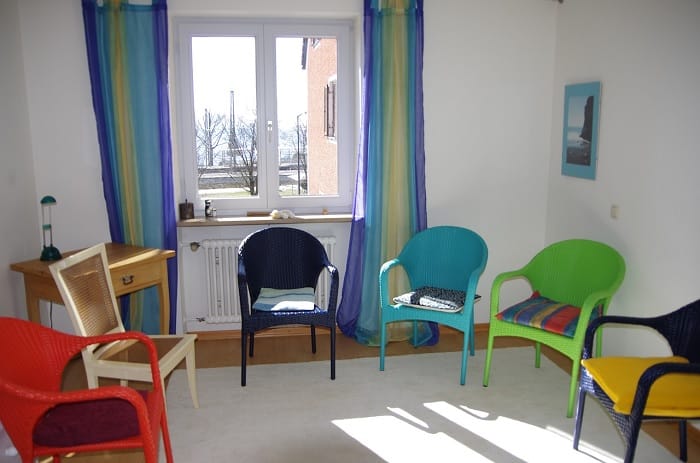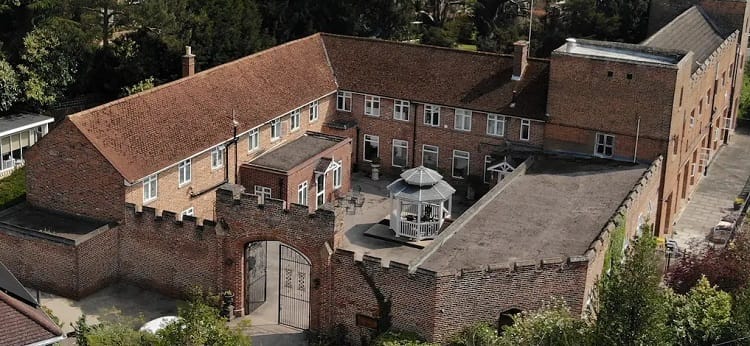Do you want to get clean and sober in Watford, but don’t want to have to wait for months to receive the treatment that you require?
Then why not call Rehab 4 Addiction?
There are over 1.2 million hospital admissions each year in England due to alcohol abuse and alcoholism.
This fact is as shocking as it is devastating.
We specialise in helping addicts to gain access to drug and alcohol rehab Watford.
Addiction is a serious illness, and without help and support in the form of addiction rehabilitation treatment to make a full recovery, your situation may only get worse.
Rehab 4 Addiction in Watford
Address: Holywell Community Centre, Chaffinch Lane, Watford, Hertfordshire, Watford. WD18 9QDTelephone: 01923 708 871
Business hours: Open 24 Hours/7 days a week
Services in Watford: Addiction Treatment, Alcohol Detoxification, Alcohol Rehabilitation, Drug Rehabilitation, Residential Rehab for Addiction, Alcohol Home Deto

Addiction is a serious issue all across the UK and, as the following drug and alcohol crime statistics show, Watford is no exception.
Addiction is a chronic, relapsing disorder, where people often fall back into using substances or behaviours even after trying to stop.
All addictions generally go through the 4 following phases:
You may be predisposed to alcohol and drug addiction by your genetics.
You may struggle with mental health issues.
Other possible early indicators include a lot of exposure and peer pressure.
Addiction can be summed up by 4 Cs:
Physical addiction is categorised into 9 types:
There are 5 types of behavioural addictions:

Addiction recovery is absolutely possible for everyone, no matter how severe your addiction.
Addiction counselling, detox medication, support networks and aftercare will help to make every step of the way as comfortable as possible
Many specialists believe that addiction recovery efforts are defined by 5 key rules:

After a person has accepted they have an addiction, they usually will go through 5 stages of change:
How long you take to recover will depend on how severe your addiction is, and the intensity of the treatment programme and support you’re able to get.
Although many consider themselves to be choosing to stay sober every day, most people feel that within six months to five years, they have fully met their addiction recovery goals and have recovered.

People who aren’t familiar with drug or alcohol addiction can think that a diagnosis of addiction is straightforward and self-explanatory.
This is a misconception, and it can be a lot harder than it seems for a person to recognise their addiction.
Recognising your own addiction is made harder by the social associations that are linked to the concept of addiction.
The social stigma can create great feelings of shame and guilt, which can act as a barrier to progression to attending a drug and alcohol rehab programme in Watford.
If you or someone you know has an unacknowledged drug or alcohol addiction there are a few ways to get a firm indication without seeking professional advice and addiction guidance.

The CAGE questionnaire was first created in order to act as a general way of informally diagnosing alcohol addiction.
It is a short, simple, and accessible questionnaire that can be found online.
The CAGE questionnaire is composed of four questions, which are answered with yes or no answers only.
Answering yes to two or more of the questions provides a strong indication that the person taking the test could have serious alcohol problems.
The CAGE questionnaire has been amended to include an assessment of the possibility of drug addiction, as well as alcohol addiction.
The amendments are small, and the questionnaire is still easy to use.
In summary, the questionnaire asks about:
Completing the CAGE questionnaire, or persuading someone you’re concerned about to complete it, can be a powerful first step.
It can make a person realise that they have drug or alcohol problems that may have previously gone unacknowledged.
Understanding this can then make the success of an intervention more likely, and can also motivate a person to seek professional advice on their rehabilitation and addiction treatment options, which is the best outcome.
During an intervention, you’ll want to gauge whether the addicted person has come to terms with the fact that they are dependent on alcohol or drugs and if they actually want to be sober.
To do this, follow the 5 As:
The CAGE questionnaire should not be relied on in place of a formal diagnosis, and it is always recommended that professional advice and addiction guidance is sought from a drug rehab clinic.
Treatment plan assessments like CAGE, AUDIT, ASAM and the DSM-5 Criteria can be used to assess the severity of a particular addiction and create a bespoke and personalised treatment plan for each individual.
To begin your addiction recovery journey with the help of drug and alcohol rehabilitation clinics in Watford, give our expert team a call on 0800 140 4690

As you start to read more about drug and alcohol rehab & treatment in Watford, you might wonder if it fits your situation.
There are of course multiple kinds of alcohol & drug rehabilitation facilities, including residential (inpatient) rehab treatment and at-home (outpatient) rehab treatment.
The former option is likely to work best for you if:
Inpatient rehabilitation facilities are particularly well suited to those suffering from severe drug and alcohol problems. For those with a less intense form of addiction, attending rehabilitation facilities as an outpatient may be more appropriate.

The DSM-IV-TR diagnostic criteria for substance dependence also summarise the key points of addiction.
This criterion is used by addiction treatment programmes in Watford to ensure your issues are correctly diagnosed.
Its primary criteria are:
To find out if a drug and alcohol rehab programme in Watford is the right choice for you, call our team today on 0800 140 4690

Rehab facility admission is a large and complex process.
A variety of factors could be at play, from your previous experiences of addiction treatment programmes to any other substances or mental health issues you might struggle with, down to what you’re actually addicted to.
When admitted to rehab, patients will answer a series of questions regarding their addiction history, rate of drug or alcohol intake, recovery environment, their experiences with previous treatments and several other key factors.
Specifically, the American Society of Addiction Medicine has outlined six dimensions regarding a person’s addiction history and current state that are widely used in addiction services across the world.
The first of these, Dimension One, is Acute Intoxication and/or withdrawal potential. This explores your experiences if you attempt to stop using, including any withdrawal symptoms.
The actual symptoms themselves can be different depending on what you’re addicted to, but they’re nearly always a barrier to the addiction recovery stage.
Dimension Two is Biomedical Conditions and complications. In any addiction assessment, it’s important to look at your health overall.
We’ll need to know about any conditions you might have before we get started, especially considering the physical side of addiction recovery efforts with concern to a medical detox programme.
Dimension Three is Emotional, Behavioural or Cognitive Conditions and Complications. It’s also very important to take your mental health as a whole into account.
Effective therapy and treatment counselling – not just for addiction but for any issues you might have – could be vital, giving you the invaluable input of addiction experts and mental health recovery specialists.

A drug and alcohol rehab programme can be a tough process – we need to make sure you’re fully emotionally prepared for it.
Readiness to change is Dimension Four, as you need to be willing to fully embrace the process for it to work.
Relapse is always a major consideration, which is why this is the Fifth Dimension.
If you have a history of relapsing, we’ll need to look at what’s gone wrong before.
That way, we can try to find a solution that works for you this time.
The Sixth Dimension is recovery/living environment, as the space you’re healing in is very significant.
Lifestyle changes are an important part of effective relapse prevention plans.
To permanently get better, you might need to make major changes to your personal life, your professional life or your environment.
When you first get to a rehabilitation facility or a sober living house, you will undergo a psychiatric assessment in order to be diagnosed and receive an appropriate rehabilitation treatment programme. This will be done by a psychiatrist of other medical professional. This will help you on your path to sobriety.
You may also need to have a medically-assisted detox programme – especially for those going through an alcohol detox programme or heroin withdrawal, or for those who have a physical dependence on a substance, as the symptoms can be very dangerous.
You may be prescribed Chlordiazepoxide for alcohol withdrawal symptoms.
Long-term consequences of abusing alcohol and drugs can include hepatitis, wernicke encephalopathy, alcohol withdrawal syndrome and more.
After your time at a treatment centre comes to an end, you will make and plan an aftercare programme which will help prevent relapse after you leave rehab.
If learning about this criteria has made you wonder bout your own suitability for drug and alcohol rehab, call our team on 0800 140 4690
The main characteristic of alcohol addiction is having impaired control over your use.
If you feel your drinking has got out of hand, you should consult the rest of the criteria in the Alcohol Use Disorders Identification Test.

The Alcohol Use Disorders Identification Test consists of 10 questions, focusing on your alcohol use and its consequences.
Drug rehabs and alcohol rehabs may make use of this when you are admitted into their care.
It’s designed to measure the severity of your addiction and has a scoring system from one to four for each question.
Any overall score above 8 should be ringing alarm bells, but a score over 13 is specifically a sign of dependency.
Questions 1-4 focus on your intake.
Questions 5-8 then put a focus on dependency.
Finally, questions 9 and 10 focus more specifically on the consequences of your addiction.
Worried about your drinking? Access a first-class alcohol rehab programme in Watford by calling us on 0800 140 4690
Generally, people who recover from alcohol did so within two or less attempts to quit.
Factors that can influence how difficult you may find it include your mental health, your existing support network, your chosen treatment centre and the specific treatment you receive before, during and after recovery efforts at rehab.

If you’re reading this on behalf of someone else, you may also be wondering where to turn.
It’s a tough situation, which can also vary based on how well you know the person and how severe you think their drug or alcohol problems are.
If you’re concerned about someone’s potential drug addiction or alcohol addiction, the best thing you can do is talk to them about it.
You should always approach with caution in such a tricky situation.
But getting the issue out in the open is at least healthier than bottling everything up, or ignoring it.
If you still can’t get through to the person and get them help, an intervention could be the next best option to formal addiction treatment programmes.

Two of the most common ways of doing this are the traditional approach and the CRAFT approach.
In a traditional intervention, you’ll write and read out a letter to the person you’re concerned about.
This might include things like the way that the drug addiction has affected you, as well as how would like to move forward.
This isn’t done to guilt the person into getting help, or to make them feel ashamed.
It gives them an outside perspective on the impact of their drug addiction or alcohol addiction, with the hope that it will finally jolt them into action.
Having said that, the CRAFT approach is possibly less confrontational and more gentle.
As a unit around the person suffering from drug addiction or alcohol addiction, you’ll learn how to communicate effectively with them.
You’ll also be able to encourage them by reinforcing positive change.
CRAFT also works very well for a wide variety of other family issues.
So even if you don’t suffer from specific drug or alcohol problems, it could be worth checking out.
To learn more about how to hold an intervention in order to convince a loved one to pursue a treatment programme at a drug and alcohol rehab programme in Watford, call our team today on 0800 140 4690

The cost of drug and alcohol rehab in Watford is also something very important to consider.
Like many other parts of this process, it’s flexible, changing based on several factors.
These are primarily the length of your treatment, the type of room you want in the case of a residential treatment programme, the specific rehab centre you have picked and its location, any luxury amenities the rehabilitation facility offers and finally the kind of treatment programme you’re receiving.
An at-home detox programme, for example, would usually come to £1,500.
You could be recommended this, or you could be recommended for a residential treatment programme.
In terms of the latter, a 10-day medical detox programme with a single occupancy room is between £2,000 to £4,000.
If you go for multiple occupancies, it then goes down to £2,000 to £4,000.
If you stay at rehab for longer, that will also change things.
A 28-day stay, for example, will be between £8,000 to £12,000 for a single occupancy room and £6,000 for a multiple occupancy room.
For a more specific answer to the cost of your stay at a drug and alcohol rehab in Watford, give our team a call on 0800 140 4690

In the UK, having access to private health insurance is not common.
However, it can be the route to accessing drug and alcohol rehab in Watford.
Private health insurance is sometimes provided by an employer as a benefit of employment.
Drug and alcohol rehab can be covered by this insurance, however accessing it isn’t always as straightforward as it might seem.
The person looking to use insurance to cover a stay at a drug and alcohol rehab treatment centre will have to disclose their addiction to their employer, which can be a difficult conversation to have.
Some people have private healthcare insurance that isn’t associated with their work.
In certain circumstances, this can also be used to cover the cost of drug and alcohol rehab Watford.
However, it will depend on the specific insurance cover that has been taken out.
If you’re looking to use your private healthcare insurance to cover rehab treatment for drug or alcohol addiction, you will have to disclose your addiction to your insurer.
This can be easier to do than disclosing your addiction to a boss, or co-worker, however it can substantially raise insurance costs in the future.
Overall, only approximately 10% of the UK has private healthcare insurance as most people rely on the NHS.
However, if you think you can use private healthcare to cover your drug and alcohol rehab & treatment, you will need to conduct extensive research first and it can still be costly.
For more advice on using insurance to pay for drug and alcohol rehab Watford, call our team today on 0800 140 4690

There are pros and cons to both private and council-funded rehab.
To start off, private alcohol rehab & treatment usually offers significantly more personalised treatment and is much quicker to access.
You’ll be able to skip the often long waiting lists of council-funded rehab and treatment programmes in Watford will be much more tailored to your exact needs.
Related to this, at a private drug and alcohol rehab in Watford it is likely that you’ll have more access to a personal therapist.

To add to this, residential alcohol rehab & treatment is best for a lot of people, as it allows you to fully focus on addiction recovery efforts.
It also has the potential to take you out of toxic environments, which often drive drug addiction or alcohol addiction issues.
On the other hand, a wide variety of fantastic rehab services are available through the NHS and local councils.
These include a thorough treatment plan, addiction counselling, support for families and specialised addiction medication.
There are several NHS and charity-run drug and alcohol rehab serviuces throughout Watford that offer addiction support, including:
Address: 156 Hatfield Rd, Albion Rd, St Albans, AL1 4JA
Telephone: 03003 650 304
Website: https://www.livingroomherts.org/
Address: 423 High Street, Chatham, Kent, ME4 4NU
Telephone: 01923 256 189
Website: http://www.growhostel.org.uk/
Address: St Martins House, 14 The Common, Hatfield, AL10 0UR
Telephone: 08006 523 169
Website: https://www.changegrowlive.org/spectrum-hertfordshire-drug-alcohol-services/hatfield
It also has the advantage of being within your local community – this is a positive both emotionally and in terms of convenience for a lot of people.
Finally, it is essentially available to everyone.
You can reach out to other organisations such as Al-Anon, Alateen, Samaritans, Change Grow Live, Turning Point, and We Are With You.
Additionally, you can also find help from places such as the National Association for Children of Alcoholics, the National Institute for Health and Care Excellence, and the NHS Foundation Trust.
For more information on the different private or NHS addiction treatment options open to you in Watford, call us today on 0800 140 4690
Inpatient rehab is when the person accessing the treatment is living full-time in the alcohol & drug rehabilitation clinic for the duration of the treatment, whether that’s 7 days or 28 days.
Inpatient drug and alcohol rehab in Watford is highly recommended for several reasons.
It can be hugely important when a person is detoxing from a substance that has serious withdrawal symptoms (for example heroin, where withdrawal symptoms can be fatal without proper care).
This is because it’s likely that a person will need continuous monitoring and hands on support.
Inpatient rehab is better at tackling long-term addictions where huge behavioural changes are necessary.
By staying at an alcohol & drug rehab clinic, a person can become immersed in the treatment programme and direct all their focus into beating their addiction, which can lead to longer-term success.
It keeps a person away from addictive substances for the entirety of their time at a drug and alcohol rehab in Watford, and away from any people who might be a negative influence on their addiction recovery efforts.
Outpatient rehab treatment is when the person accessing the rehab treatment is doing so without remaining in the care of an alcohol and drug rehabilitation clinic.
It could take the form of a home detox programme, semi-regular visits to a treatment centre, or local group therapy.
Outpatient drug and alcohol rehab in Watford is often shorter, and not as intense as inpatient treatments.
This means they are less likely to affect long-term behavioural change, but can still be helpful in some circumstances.
In summary, inpatient treatments are vital when withdrawal symptoms could be serious, and result in a more successful treatment.
Outpatient treatments are less expensive and can be helpful for short-term detoxing.
For guidance choosing between inpatient rehab or outpatient drug and alcohol rehab & treatment in Watford, call our team today on 0800 140 4690

The DSM-5 is the document that many modern diagnoses are based on.
In it, substance abuse disorder is defined based on several criteria, making it much easier to diagnose.
There are 11 criteria in total. If you meet two to three of them, you have mild drug and alcohol abuse disorder.
If you meet four to five, you have it moderately. And if you meet six or more then you have a severe case.
The criteria themselves are:
Speaking generally, some of the most common symptoms include sweating, diarrhoea, vomiting, tremors, seizures and hallucinations in the worst cases.
It may also change depending on the severity of your addiction, as the most extreme symptoms tend to come with the worst cases.
If these criteria have made you consider your own need for drug and alcohol rehab in Watford, call our team today on 0800 140 4690

The amount of time you spend at drug or alcohol rehab will depend on the severity of your case, in addition to how well your rehabilitation programme goes.
When you first discuss attending drug and alcohol rehab & treatment in Watford with us, we’ll be able to talk through all of this, taking into account the specific circumstances of your situation.
Overall, beyond initial practical discussions like that, we don’t recommend focusing too much on how long rehab treatment will take.
It’s much better to put your attention on treatment, without putting a ticking clock onto everything.
Having said that, an alcohol detox programme lasts for a minimum of 7 days, but to get the full benefits of rehab we’d usually recommend at least 28 days.
For a more personalised estimation of how long your time at a drug and alcohol rehab in Watford will take, call us today on 0800 140 4690

Like with many other substances, the alcohol detox process comes with a unique set of symptoms.
Here, it’s primarily physical.
The chemicals in your brain have adjusted to your excessive alcohol use, resulting in a reaction when your alcohol levels suddenly drop.
These withdrawal symptoms are on a sliding scale, largely depending on how severe your addiction is.
Going from lighter to heavier, some of the most well-known alcohol withdrawal symptoms are:
Generally, at the beginning of drug and alcohol rehab in Watford, you’ll undergo a 10-day Librium-based alcohol detox process – or another medication course – to reduce the risk of these symptoms.
After this, we can move forward with the rest of your addiction treatment, generally focusing more on the emotional side of your addiction after your physical recovery efforts.
In cases of alcohol addiction, this part usually lasts for about 3 weeks.
But, like almost every other part of this process, it can very easily change depending on your specific needs.
To access alcohol rehab in Watford, call our team today on 0800 140 4690

Now, let’s look over the three worst withdrawal symptoms in a bit more detail.
On a technical level, delirium tremens consist of severe confusion, as well as “sympathetic overdrive”.
This essentially means that your levels of both cortisol and adrenaline are increased.
This then causes many other physical symptoms such a:
This can then lead to severe heart problems and other physical issues.
Seizures can also occur at various stages of alcohol withdrawal, sometimes happening 72 hours after your last drink.
People who are addicted to alcohol may also experience these seizures after binge drinking and have a much higher chance of developing epilepsy.
The neurological impact of alcohol can also lead to tremors, in addition to other physical symptoms.
Hallucinations generally happen 12 to 24 hours after your last drink and are caused by the same changes as other withdrawal symptoms.
To make sure your withdrawal is properly monitored, get the help of an alcohol rehab in Watford by calling us on 0800 140 4690

Home detoxes have a few advantages.
They’re cheaper than an inpatient treatment programme and if you have a less severe issue, you may be more comfortable at home
On the other hand, it’s not as safe as an inpatient alcohol detox.
You won’t be monitored in the same way and if you’re high risk, you could experience dangerous withdrawal symptoms.
To be recommended specifically for at-home medical detox in Watford, you need to be drinking under 30 units a day.
If you’re not identified as high risk, Librium will be posted to you.
If you are identified as high risk, you’ll need to be more closely monitored.
To find out whether or not you’re suited to undergo home detox, or if a drug and alcohol rehab in Watford would be more suitable, call our team on 0800 140 4690

It’s important to not confuse an at-home detox with a self-detox, which is very distinctly not a medical detox procedure.
Receiving support from a professional is always the better option.
In an at-home detox, you’ll be prescribed specific detox medication.
Simply stopping your use could produce dangerous withdrawal symptoms and you wouldn’t be equipped to stop them from happening.
If you do choose to pursue a home drug detoxification instead of inpatient treatment in Watford, you’ll be prescribed anti-withdrawal medications and will be monitored daily through phone conversations.
To begin your recovery journey with the help of a drug and alcohol rehab in Watford, give our expert team a call on 0800 140 4690

Cocaine is psychologically addictive because it affects your brain chemicals, elevating your mood and producing a sense of euphoria.
Other results of initial use are mental alertness, extreme energy, dilated pupils and the user being extremely talkative.
Cocaine addiction doesn’t come with physical withdrawal symptoms and there is no need to detox from it.
If it’s cocaine you’re struggling with, you’ll go straight to the mental health/therapy stages of cocaine rehab.
However, as you attempt to recover you might experience the following:
Depression is also one of the biggest side effects of cocaine addiction overall, not just at the treatment stages, alongside cravings.
Beat your cocaine addiction with the help of a drug and alcohol rehab in Watford – call us today on 0800 140 4690

As heroin is physically addictive, those undergoing drug rehab & treatment for an addiction to this opioid will need to go through a drug detox.
This will then help with any withdrawal symptoms.
It’s also one of the most addictive substances out there, so it will likely need the support of higher intensity addiction treatment programmes.
The withdrawal symptoms for heroin are also mostly physical, although there are some psychological ones too.
They generally start about 6 to 12 hours after your last dose, peaking at 1 to 3 days and then subsiding after a week.
Some specific withdrawal symptoms of heroin addiction and abuse are:
These generally last for about a week – during a heroin detox, we’ll slowly and safely reduce your intake, to try and lessen them.
Beat your heroin addiction with the help of a drug and alcohol rehab in Watford – call us today on 0800 140 4690

Like cocaine, cannabis isn’t physically addictive and withdrawing from it doesn’t result in physical symptoms.
There also isn’t a detoxification process for cannabis, so the focus of recovery will once again be psychological, especially as it’ is a mood-altering substance.
This also goes for many other kinds of drug addiction.
But a huge proportion of those who end up with cannabis dependence has underlying mental health issues like PTSD, depression and anxiety.
Many people casually use cannabis and don’t develop a drug addiction.
Unlike other drugs on this list, it’s even legal in some places and has been shown to have medicinal uses.
Around 20 to 30% of people who smoke cannabis will develop a dependency, while 9% will develop a full-on drug addiction.
Cannabis specifically affects your levels of dopamine, a very important neurotransmitter that specifically affects your brains’ reward system.
Over time, these different levels will change the way that dopamine is produced.
Do you find that you can’t stop yourself from using, are you constantly neglecting other parts of your life because of your cannabis abuse, or if it’s affecting your professional and or personal relationships?
Beat your cannabis addiction with the help of a drug and alcohol rehab in Watford – call us today on 0800 140 4690
Other types of addictions and substance use disorder that can be treated at rehab include:

Do you feel that alcohol has control over you?
How would you feel if you had to stop after one?
Do you ever use alcohol to escape your emotions or responsibilities?
Abusing alcohol can cause dementia and memory problems, as it affects the brain as well as the body.
It can affect school performance among younger users and take a toll on the immune system.
This can lead to infections and viruses.
The most common conditions alcoholics face are:
Type one alcoholism develops in adulthood.
You likely go without drink for periods of time, and feel guilty when you do drink.
You binge on alcohol, despite how this affects you tending to your responsibilities.
Your decline from mild to severe alcoholism was rapid.
Type one are the type most likely alcoholics to develop liver disease, so it’s important to take your addiction seriously.

You first started experiencing disordered drinking as a teen or young adult.
You’ve had fights or been arrested.
Your alcohol abuse is steady and severe.
Drinking over 14 units of alcohol a week regularly risks damaging your health so if you are consuming more than this, you could be at a greater risk of complications.
Alcohol overdose looks like falling asleep, vomiting, confusion, and a feeling cold to the touch.
If someone’s blood alcohol levels are very high, they may have seizures, slow heart rate and reactions, or struggle to breathe.
The worst prognosis is brain damage, and death.
Even in moderate quantities, alcohol depletes your body’s resources of calcium, magnesium, iron, and zinc.
You may need to take supplements to avoid a nutrient deficiency.
With time, your body becomes less resilient to toxins.
You’re also more likely to get into accidents while drunk in your older years.
Your immune system have difficulty recovering from alcohol, so you may get bad hangovers that last a long time.

As alcohol takes a toll on the body, you have less defences against the natural complications of ageing.
Men who are alcoholics live, on average, to 47–53, and women, 50–58.
The 4 Ps stand for present, past, partner or parents.
If alcohol is present in any of these four important aspects of your life, you could either have alcohol dependency, or have a higher chance of experiencing it in the future.
We promote residential treatment and inpatient rehab because it will give you the best chances of success.
Everyone’s addiction is unique – from your environment to your genetics – so your treatment will need to be suited to you.
If you have been consuming a lot of alcohol, you need to exercise caution, as it may be dangerous to stop drinking.
Coming to terms with your addiction is the first stage of your recovery process.
The first step is to speak to your GP, or a licensed addiction specialist.
If you’re going to rehab, you’ll receive alcohol detoxification medication as necessary.
Relapsing is a part of addiction, and the relapse rate is currently around 40 – 60%.
Often it takes two or less attempts to quit.

CBT can greatly bring down the relapse rate in people recovering from alcoholism.
In a study, just 23.80% of those treated with CBT had a relapse, whilst 83.87% with alcoholism recovered fully.
Acamprosate halts alcohol cravings by restoring a natural chemical balance.
Naltrexone also lowers cravings and can be taken after alcohol and drug detoxification.
The three pillars of the recovery process are a tool to help you remember to keep these aspects of your life in good health.

As we’ve already seen here, mental health treatments in Watford are a huge part of alcohol rehab.
Undoing the psychological damage drug addiction does is one of the most significant parts of the process.
The psychological support you receive at rehab will be just as effective as the support received at a dedicated mental health treatment hospital.
The kinds of therapy on offer through drug and alcohol rehab in Watford include:
Other types of therapy typically available during a rehabilitation programme include:
In addition the above, there are a range of other psychiatric addiction treatment options that are available at rehab. These include brief intervention, contingency management, training on bespoke coping mechanisms and person-centred care.
It is possible to get therapy on the NHS, but you may be left waiting a long time, as the service is very over-stretched and under-funded.
To access any of these treatments at a drug and alcohol rehab in Watford, call our team today on 0800 140 4690

When starting you off on your alcohol rehab or drug rehab journey, it’s also important that we acknowledge any underlying psychiatric issues.
Many, including bipolar disorder, depression, anxiety and schizophrenia, are linked to drug and alcohol misuse.
As drugs impact your brain, they can cause these problems to occur.
At the same time, existing mental health struggles can be among the causes of an addiction to alcohol or drugs in the first place, as these conditions can have a severe emotional impact that drives a person to cope by abusing substances.
Either way, these can be treated via the same therapy and counselling techniques as alcohol addiction itself, which are the same techniques used at a conventional mental health treatment hospital.
This includes cognitive behavioural therapy, dialectal behavioural therapy and holistic therapies.
Other mental health conditions that can be treated during a rehabilitation programme include:
The most frequent conditions are borderline personality disorder and anti-social personality disorder.
You can also find general mental health support at Rethink Mental Illness, Papyrus, Young Minds, Samaritans and Mind UK.

An effective relapse prevention plan is also a vital part of a person’s recovery progression.
This is something you will plan during your addiction treatment in Watford, taking your specific situation into account.
The first thing we’ll need to go through is triggers and cravings. You’ll need to learn how to identify these, so you can avoid them.
You’ll also learn the symptoms you’ll encounter when you come across triggers, like feeling nervous or tense.
We’ll also need to include a plan in case you do relapse. This will feature what specifically needs to happen, in addition to contact details.
Finally, we’ll also go over any lifestyle changes you might need to make once your treatment finishes in Watford.
Often outside forces can have a huge negative impact on alcohol addiction.
Toxic relationships you had before might need to be identified, and either made healthier or left for the sake of your recovery progression.
If something in your previous life was causing you immense amounts of stress or anxiety, you might want to consider leaving that too, as stress rehab & treatment is often a key part of beating addiction.
Finally, if you can, you might want to consider changing the environment you’re living in.
The bottom line is if you’re in any kind of space that won’t encourage your recovery progression, that might need to change post-treatment in Watford.
None of this is set in stone, of course, and it all depends on the specific situation.
It’s just a conversation that might need to happen when planning out your next steps.
Call our expert team today on 0800 140 4690

If you don’t feel like residential alcohol rehab will suit you, there are plenty of other addiction treatment options in Watford.
One of the best-known of these probably supports groups like Alcoholics Anonymous (AA), Narcotics Anonymous (NA) and Cocaine Anonymous (CA).
Both organisations are active in Watford and across Hertfordshire.
Addiction can often make people feel alone and isolated.
Support groups can show you that you’re truly not, giving you connections with people who truly understand what you’re going through.
You can also air out all of your feelings in a confidential space, where you know that everyone present will understand.

The SMART in SMART Recovery stands for Self-Management And Recovery Training.
Unlike alcoholics anonymous, alcohol isn’t viewed as a disease here, rather a dysfunctional habit.
The focuses here are on building and maintaining motivation, coping with urges, managing thoughts, feelings and behaviours and living a balanced life.

Addiction doesn’t just affect the person suffering from it.
Because of the way it changes behaviour and affects personal relationships, it can also have a devastating impact on families.
If this applies to you, then family therapy is definitely something to consider
Linking with the at-home outpatient rehab treatment via a local drug and alcohol team in Watford also works effectively for a lot of people.
You’ll have access to most of the same therapies and treatments as residential treatment would provide.
But you’ll experience them via regular visits to a centre, while you continue to stay in your regular home environment.
A major disadvantage of this is, of course, the temptations and distractions that will be around you.
This choice is definitely something you should think over and discuss.

At Rehab 4 Addiction, we can match you with a private rehab centre in Watford.
They include modern, state-of-the-art rehabilitation facilities and luxurious surroundings, allowing you to make a full recovery in a pleasant, comfortable environment.
You won’t face a waiting list for months, as is common with the treatment provided through the NHS.
Treatment is available right away, whenever you’re ready to battle your addiction.
Once your treatment at a residential alcohol rehab and drug rehab clinic in Watford is complete, you’ll then benefit from a comprehensive aftercare package, which includes regular therapy sessions.
This will make it much less likely that you’ll relapse upon returning home.
Call our expert team today on 0800 140 4690.

When you’re ready to take the first step to overcome your drink and drug issues, we’ll be waiting for your call.
Contact us on 0800 140 4690 to discuss your treatment needs with one of our experienced and knowledgeable advisers.
We have an excellent knowledge of the various drug and alcohol rehab centres in Watford, so you can rely on us to make sure you receive your ideal addiction treatment.
Our addiction experts will be able to refer you to an excellent CQC registered addiction treatment centre in Watford with a thorough and proven track record of success.
Every rehab facility we recommend will be regulated by the Care Quality Commission (CQC) in England and Wales or the Care Inspectorate (CI) in Scotland.
We also refer people to rehabs across Hertfordshire, including alcohol rehab in Stevenage, Hoddesdon, Hertford, Hemel Hempstead, St Albans, Letchworth Garden City, Welwyn Garden City, Potters Bar, Harpenden, Broxbourne and many others.
So, take action today to overcome your addiction once and for all.
 Substance addiction, also referred to as Substance Use Disorder (SUD), is a chronic and relapsing brain disease that affects both physical and psychological functioning. It develops when repeated exposure to drugs or alcohol alters brain chemistry, particularly the reward and motivation systems, leading to compulsive substance use despite harmful c .... Read More
Substance addiction, also referred to as Substance Use Disorder (SUD), is a chronic and relapsing brain disease that affects both physical and psychological functioning. It develops when repeated exposure to drugs or alcohol alters brain chemistry, particularly the reward and motivation systems, leading to compulsive substance use despite harmful c .... Read More
 Addiction recovery is a deeply personal and individual journey. The decision to seek help for your drug or alcohol addiction and rebuild your life generally happens quietly, sometimes after years of struggle. But while recovery starts at an individual level, it’s rarely successful in isolation. Behind most long-term recovery stories is a time whe .... Read More
Addiction recovery is a deeply personal and individual journey. The decision to seek help for your drug or alcohol addiction and rebuild your life generally happens quietly, sometimes after years of struggle. But while recovery starts at an individual level, it’s rarely successful in isolation. Behind most long-term recovery stories is a time whe .... Read More